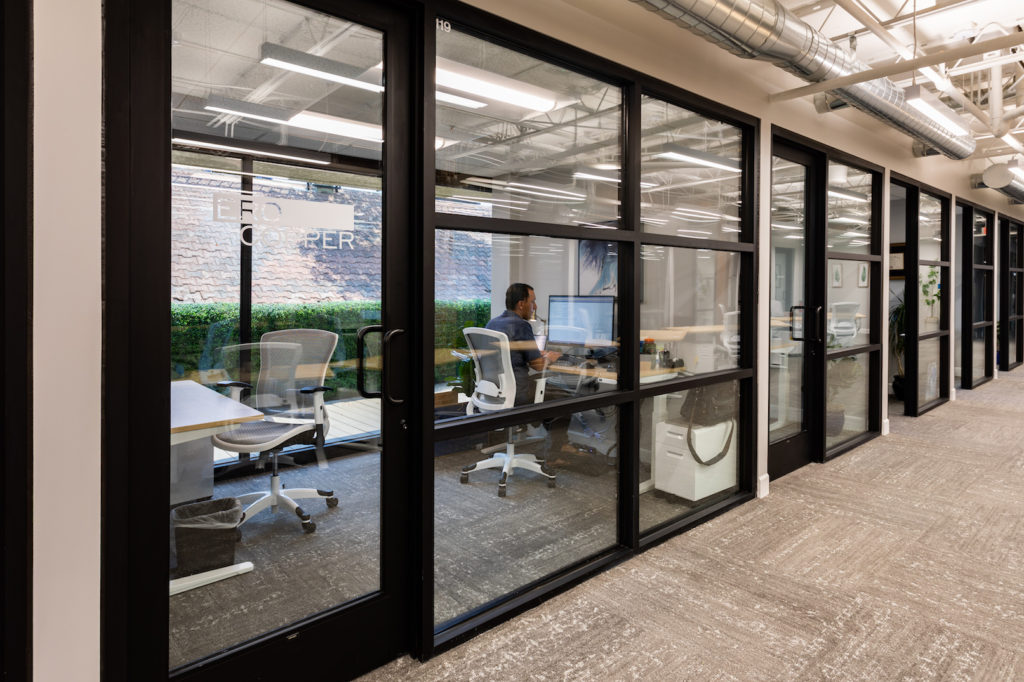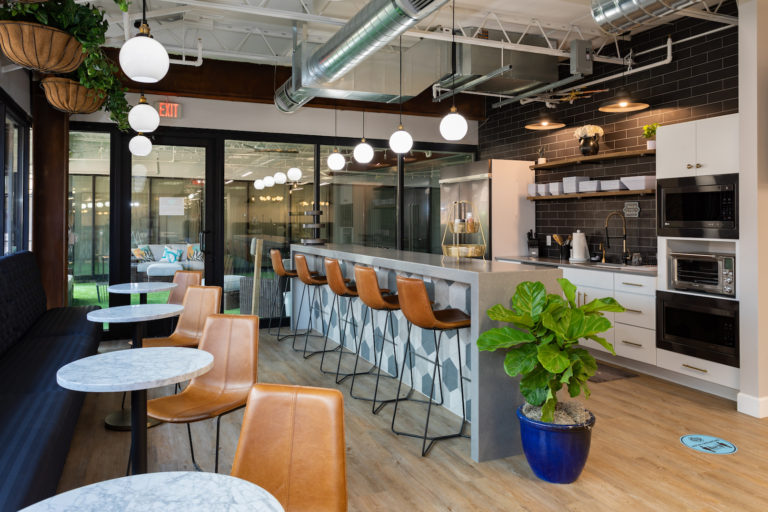
From a professional perspective, COVID-19 has set us back drastically in a number of ways. But on the flip side of that coin, it has also forced many businesses to adapt in a way they may never have — and that could ultimately benefit them in the long run.
In fact, the pandemic has created what many are calling the “work-from-home revolution,” with global organizations like Twitter, Google, Square, and Shopify either extending their remote work policies significantly or even decentralizing entirely.
But decentralization and remote work are a double-edged sword.
Here’s why.
7 Benefits of Remote Work for Businesses and Employees

There are no two ways about it. Allowing remote work is beneficial to businesses and employees for a number of reasons, including:
- Increased Productivity: It’s been shown that remote workers are 35-40% more productive than those who work in-office and have measured an output increase of at least 4.4%.
- Reduced Absenteeism: Remote workers have been shown to have 41% lower absenteeism due to higher productivity and performance which combine to create stronger engagement.
- Boosted Retention: A whopping 54% of employees say they would change jobs if they were offered more flexibility, resulting in an average of 12% reduction in turnover.
- Increased Profitability: Organizations have been shown to save an average of $11,000 per year per part-time telecommunter, or 21% higher profitability. Eliminating the need for physical office space also helps reduce overhead costs and the day-to-day administrative costs of operating an office.
- Enhanced Work-Life Balance: Remote employment often comes with a flexible schedule which means employees can manage their days as they choose, so long as they’ve achieved the day’s goals. This enhanced work-life balance does wonders for employee morale.
- Less Commute Stress: The average one-way commute time in the U.S. is 27.1 minutes which means that the average person spends about 100 hours commuting and 41 hours stuck in traffic each year. And when you consider that more than 30 minutes of daily one-way commuting is associated with increased levels of stress and anxiety, you can start to see how reducing this would be extremely positive for employees.
- More Access to Talent: For businesses, having a remote team means being freed of geographical limitations when it comes to acquiring talent. With remote working, your business can hire top talent from outside the city or even outside your state.
It’s hard to deny that remote work offers big benefits to both businesses and employees but, as we said, it can be a double-edged sword.
5 Downfalls of Remote Work for Employees and Teams

For all the great aspects of remote work, it also comes with its own set of unique challenges. While many employees have been working remotely for a long time, the pandemic has meant that many have been forced to do so unexpectedly — and often without wanting to.
And in both scenarios, remote employment can present some downfalls, including:
- Time Management: The flip side of increased work-life balance is the challenge of managing your time effectively when working from home. It can be all too easy to get side-tracked with a task like mowing the lawn or doing laundry and losing your momentum in getting work done.
- Overworking: Because there’s no clear distinction between “work” and “home” when operating remotely, it can be easy to overwork or simply feel like work never ends. This can get tolling on your employees’ wellbeing.
- Team Communication Challenges: For all the wonderful communication technologies available, the truth is that staying in contact with your colleagues in an efficient and productive way can be challenging when working remotely.
- Loneliness and Isolation: People need human interaction. It’s fundamental to their wellbeing. Working from home can create a sense of loneliness and isolation. While this might be OK for a short time, it can become problematic in the long-run.
- Distractions: Whether it’s having kids at home during the pandemic, people knocking on the door, pets barging in on you, or you simply being too close to the couch and TV, it can be all too easy to get distracted and slack off while working from home.
The good news is that there are options available that allow both organizations and employees to benefit from remote employment while also minimizing the pitfalls associated with it.
8 Key Benefits of Flexible Office Space for Remote Teams

Curious about the key to enjoying the benefits of remote work while minimizing work-from-home related challenges?
The answer is flexible office space.
Essentially, flexible office spaces are highly accommodating, membership-based shared offices that offer remote teams and employees access to workspaces, meeting rooms, conference areas, and the tools they need to get great work done.
Flexible office space, which can include private offices, coworking, and virtual office services (you might want to check out our blog article on the benefits of virtual office services during a pandemic), offers a ton of benefits for both organizations and employees.
This includes:
- Increased Collaboration: For remote teams who enjoy in-person collaboration, flexible office space provides them with a space to work together when they want or need to.
- On-Demand Access: Your remote employees can get access to professional office space when they want a change of scenery from their home office, whether it’s a coworking desk so that they can sit down and work when and where it’s convenient or a dedicated private office for your entire team.
- Cost-Effectiveness: Flexible office space allows you to provide your team with a professional workspace at a fraction of the cost of a traditional office lease. Rather than paying high prices on long-term leases, you can get flexible, on-demand office access without the overhead costs of a traditional space.
- Professional Community: The cure for loneliness and isolation for remote employees and teams? Surrounding themselves with a community of like-minded professionals. And at a flexible office space, that’s exactly what they’ll get. At The Post Workspaces, we even offer a dedicated Member Portal which allows you to
- Create and customize your company and personal member profile
- Upload your business logo and/or a professional headshot as well as add in additional information about what you do or what services or goods your business offers
- Network and connect with other professionals in The Post Member and community portal
- Join The Post Workspaces community Slack Group
- Scalability: Where a traditional lease locks you into terms based on the size of space you’re taking on, flexible office space allows you to scale your space based on how many employees you have. For example, if your team grows by five people, we can help you quickly tailor your membership to accommodate them. On the other hand, if your team shrinks in size, you can reduce the volume of space you take on so you’re not paying for anything you don’t need.
- Shorter Commute Times: As suburban coworking grows, it provides remote employees and teams with options that are increasingly closer and closer to their homes. That means they can have access to an office without having to take the long commute into the urban core everyday.
- Reduced Distractions: The reality is that being in a professional environment helps employees stay focused. At a flexible office space, you can leave the distractions of home at home and hone in on achieving what you need to achieve on any given day.
- Distance Between Work and Home: The physical distance between your workplace and your home allows you to disconnect and rest in a way that you often aren’t able to when you work from home. Having a flexible workspace literally creates separation between work and home.
- Administrative Support and Business Tools: Have you ever been working from home and realized you didn’t have a tool you need to do your job? It could be a printer, a scanner, or a fax machine. Or, maybe you could benefit from somebody to greet your clients, or a professional place for meetings rather than a coffee shop. With flexible office space, you get all the key business tools and support you need to get your work done without having to pay an exorbitant premium to get it.
As COVID-19 changes the way we work — likely forever — it’s important that companies start exploring new working arrangements for their teams and employees. But as that happens, it’s also vital to consider what they need to be happy and productive.
If you have a remote team or employee or are moving towards decentralizing, we recommend that you stay in touch with your team. Monitor their needs, morale, and productivity.
And if you think you could benefit from flexible office space, would like to learn, or want to book a tour, get in touch with us. We’d be happy to chat with you about how The Post Workspaces can help your team achieve their best work.
Are You Looking for a Professional Private Office Space for Your Remote Team?
If you’d like to learn more about how a private office space can benefit your remote team, contact us today.
